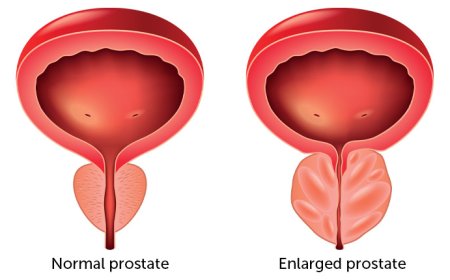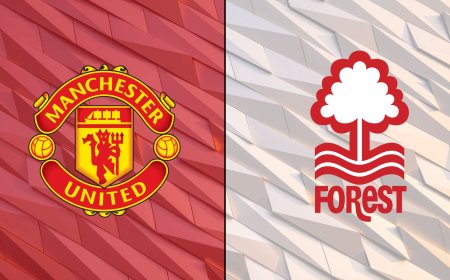LGBTQ+ In Ghana: A Look At The Struggles Faced By Activists & Allies
Despite the widespread acceptance of queer people in the West, this is still a battle that many countries in the world are facing. In Ghana, those who are part of or support the LGBTQ+ community often find themselves facing immense struggles. In this article, we will take a look at what these activists and allies go through on a daily basis.

Since homosexuality is not widely accepted in Ghana, members of the LGBTQ+ community often face discrimination and violence. In recent years, there have been several reports of attacks on LGBTQ+ people, as well as attempts to pass laws that would criminalize homosexual relations.
Despite the challenges, there are a number of activists and allies working to create a more inclusive society for LGBTQ+ people in Ghana. These individuals are working to raise awareness about the issues faced by the community and to lobby for legal and policy changes that would protect their rights.
In this section, we will provide an overview of the situation for LGBTQ+ people in Ghana. We will also highlight some of the work being done by activists and allies to improve the situation.
Historical Context of LGBTQ+ Rights in Ghana
Ghana has a long history of LGBTQ+ rights activism, dating back to the country's independence from British colonial rule in 1957. Since then, there have been a number of milestones for the LGBTQ+ community in Ghana, including the decriminalization of same-sex relations in 2003 and the establishment of the Ghanaian National Coalition of Lesbian, Gay, Bisexual, Transgender and Intersex Persons (GNC) in 2010.
However, despite these advances, the LGBTQ+ community in Ghana continues to face many challenges. For example, discrimination and violence against LGBTQ+ people is still common, and there is no legal protection from discrimination on the basis of sexual orientation or gender identity. In addition, same-sex relations are still criminalized in some parts of Ghanaian society, which makes it difficult for LGBTQ+ people to openly express their identities.
As a result of these challenges, many LGBTQ+ Ghanaians live in fear and insecurity. This was highlighted by a recent study which found that nearly 60% of LGBTIQ+ people in Ghana had experienced physical violence due to their sexual orientation or gender identity. The study also found that almost 80% of LGBTIQ+ people had experienced verbal abuse or harassment.
Despite the challenges faced by the LGBTQ+ community in Ghana, activists continue to fight for equality and acceptance. In 2017, for example, activists successfully lobbied for the inclusion of sexual orientation and gender identity as protected grounds under Ghana's new anti-discrimination law. And in 2018,
Challenges Faced by Activists & Allies
Ghanaian activists and allies working towards equality for the LGBTQ+ community face many challenges. Despite recent progress, such as the decriminalization of same-sex relations in Ghana, the LGBTQ+ community continues to be marginalized and face discrimination.
Activists report that they are often targeted by government officials and subjected to violence. They also face challenges in getting their message out due to a lack of resources and media support. Additionally, many members of the LGBTQ+ community remain closeted for fear of discrimination or violence.
Despite the challenges, activists continue to work towards equality for the LGBTQ+ community in Ghana. They hope that by raising awareness and visibility of the issues faced by the community, they will eventually be able to bring about lasting change.
Discrimination & Violence Against the Community
Discrimination and violence against the LGBTQ+ community is unfortunately all too common in Ghana. Activists and allies are constantly working to raise awareness and fight for equality, but the challenges they face are many.
For one, there is a lack of legal protection for LGBTQ+ people in Ghana. There is no law against discrimination based on sexual orientation or gender identity, which leaves members of the community vulnerable to abuse and mistreatment. Additionally, same-sex relations are criminalized under Ghanaian law. This creates an environment in which LGBTQ+ people are not only discriminated against, but also at risk of arrest and imprisonment.
This discrimination and violence takes a toll on both individuals and the community as a whole. It can lead to mental health problems, substance abuse, homelessness, and suicide. And it makes it difficult for members of the community to form supportive relationships and networks.
Fortunately, there are also many people working hard to support the LGBTQ+ community in Ghana. There are grassroots organizations that provide resources and safe spaces for queer people. And there are allies who use their platforms to speak out against discrimination and violence. With continued effort from both activists and allies, hopefully Ghana will one day be a place where everyone can live safely and equally regardless of their sexual orientation or gender identity.
The Role of Government, Religion and Traditional Beliefs
The role of government, religion and traditional beliefs in Ghanaian society can be both a help and a hindrance to LGBTQ+ rights activists and allies working within the country. On the one hand, these institutions can provide much-needed support and protection for queer people; on the other hand, they can also be sources of discrimination and violence.
The Ghanaian government has been generally supportive of LGBTQ+ rights, with President Nana Akufo-Addo stating that “all citizens are equal before the law” regardless of their sexual orientation. However, there is still no legal recognition or protection for queer people in Ghana, meaning that they can be discriminated against in housing, employment and other areas of life.
Religion is also a complex issue for LGBTQ+ people in Ghana. While some churches – such as the Metropolitan Community Church (MCC) – are inclusive and affirming of queer people, others – like the Pentecostal and Evangelical churches – are often hostile. This can make it difficult for queer Ghanaians to find a place of worship that meets their needs.
Traditional belief systems can also be both helpful and harmful to LGBTQ+ people in Ghana. On the one hand, some traditional leaders have spoken out in support of queer rights; on the other hand, many traditional beliefs view homosexuality as taboo and punishable by death. This leaves many queer Ghanaians caught between two worlds – struggling to reconcile their sexual orientation with their cultural identity.
What's Your Reaction?

































